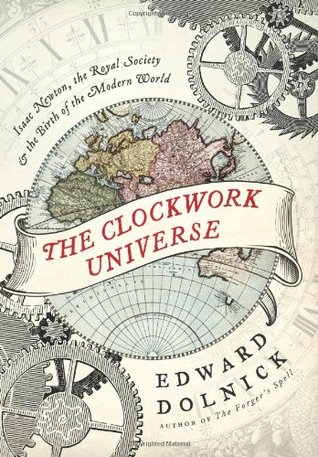An account that couldn’t decide if it was a scandalous history or a popular science, The Clockwork Universe meandered through religion, astronomy, personal scientific feuds, disease, and math, so there’s a little bit in there for you, as long as you’re willing to sludge through the rest. I found myself captivated and inspired in sporadic detailed narratives and explanations, but there was also a fair amount of “just pushing through it” during the simplified conclusion-drawing sessions.
This book primarily focused on the genius and strangeness of Isaac Newton, as he led the charge of the Royal Society and scientific progress. But it’s constantly juxtaposed with Newton’s fanatic religious views, his scholarly feuds with Leibniz and Hook, and his total lack of a personal life. The world of the 17th century was full of plague, fire, religion, conformity, and God’s hand, and Newton fit in perfectly because of his personal vision. But not all people or scientists of the time were so loyal to their convictions or afraid to see a new world. But almost a century previously Shakespeare shook foundations all his own. Despite Isaac Newton’s conservative ideas about keeping science “pure”, chemists like Robert Boyle promoted a shared learning of science for the rich and the poor, in a common language all could understand. Plenty of scientists explored all sorts of weird theories devoted to witches and the occult, away from the shining light of God.
Sure, Isaac Newton was a weird guy, and a genius. He embodied many contradictions. But he wasn’t that strange, even by today’s standards of scientists. We scientists today still cling to old theories because that’s how we learned science. Newton was a great scientist because he constantly updated his theories to fit the real data, and he did not fall prey to the pretty idea that planets should travel in perfect circles instead of ellipses. We are all limited by our upbringing and worldview and fear of being wrong or labeled an apostate, but science pursued in its purest form slowly breaks down those barriers.
It might not surprise you then, that my favorite parts of this book were the delves into mathematical theory or scientific discovery, from the invention of the telescope to the extension of the theory of gravity to the moon. Inspirational and true, these stories are examples of how limited paradoxical humans pursued knowledge, through whatever incentive, and advanced the world as we know it.
